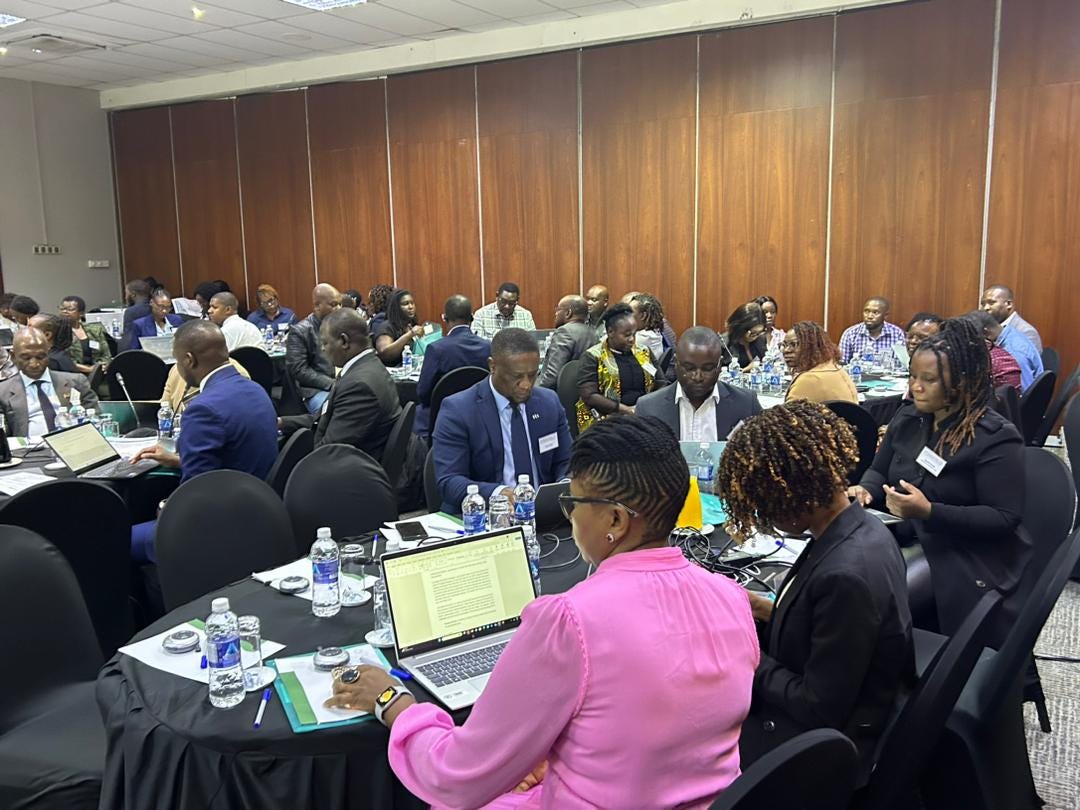SADC Faces Challenges, Makes Progress in Regional Development Initiatives
Despite ongoing challenges, the dialogue underscores SADC's commitment to addressing regional issues and promoting sustainable development across southern Africa.

HARARE, Zimbabwe -- The Southern African Development Community (SADC) is grappling with significant challenges while making strides in regional cooperation, according to a presentation at the 4th Regional Dialogue for Non-State Actors on the SADC Regional Indicative Strategic Development Plan (RISDP) 2020-30, writes Winston Mwale.
The two-day event, which began on August 14, 2024, in Harare and virtually, highlighted both obstacles and achievements in SADC's efforts to foster regional development.
Key challenges include a lack of reporting by member states, low public awareness of SADC processes, and increasing food insecurity.
However, progress was noted in areas such as health system recovery, climate finance mobilization, and the approval of a social security action plan for workers.
Julie Middleton, Regional Project Manager for the PSA Project, presenting the 2023 observations, emphasized the need for improved coordination among member states.
"We're seeing varying SADC coordinating structures across member states, with most national committees not fully functional," Middleton said.
The presentation also outlined action plans and opportunities, including the development of a regional repository for indigenous foods and the adoption of a mining protocol.
Recommendations focused on creating inclusive national committees, operationalizing engagement mechanisms with non-state actors, and improving transparency in reporting to SADC.
Despite ongoing challenges, the dialogue underscores SADC's commitment to addressing regional issues and promoting sustainable development across southern Africa.
This year's event, themed "Strengthening social accountability in public resource management for sustained economic growth and development in Southern Africa," is being held in a hybrid format, allowing participants to join both in-person and virtually.
The dialogue is strategically scheduled just ahead of the SADC Heads of State and Government Summit, which is set for August 17-18.
It aims to assess the progress made in implementing the RISDP four years into its execution. Attendees include representatives from SADC National Contact Points (NCPs), SADC National Committees (SNCs), and various non-state actors from across the region.
Key discussions will focus on national-level implementation of the RISDP, addressing resourcing, execution, and monitoring efforts. Participants will also evaluate the effectiveness of SADC National Committees in overseeing the plan's implementation.
This dialogue serves as a vital platform for non-state actors to engage with government representatives, providing insights and recommendations aimed at enhancing investments in human and social development and improving financial resource management within SADC member states.
Co-convened by a coalition of regional organizations, including the Southern Africa Trust and the Economic Justice Network, the event reflects a continued commitment to inclusive regional development.
The hybrid format is designed to maximize participation despite ongoing travel challenges, ensuring broad engagement from stakeholders throughout the SADC region.
As the region navigates complex economic and social challenges, this dialogue represents a significant opportunity for collaborative strategizing and assessment of the RISDP 2020-2030, a key blueprint for regional development.



